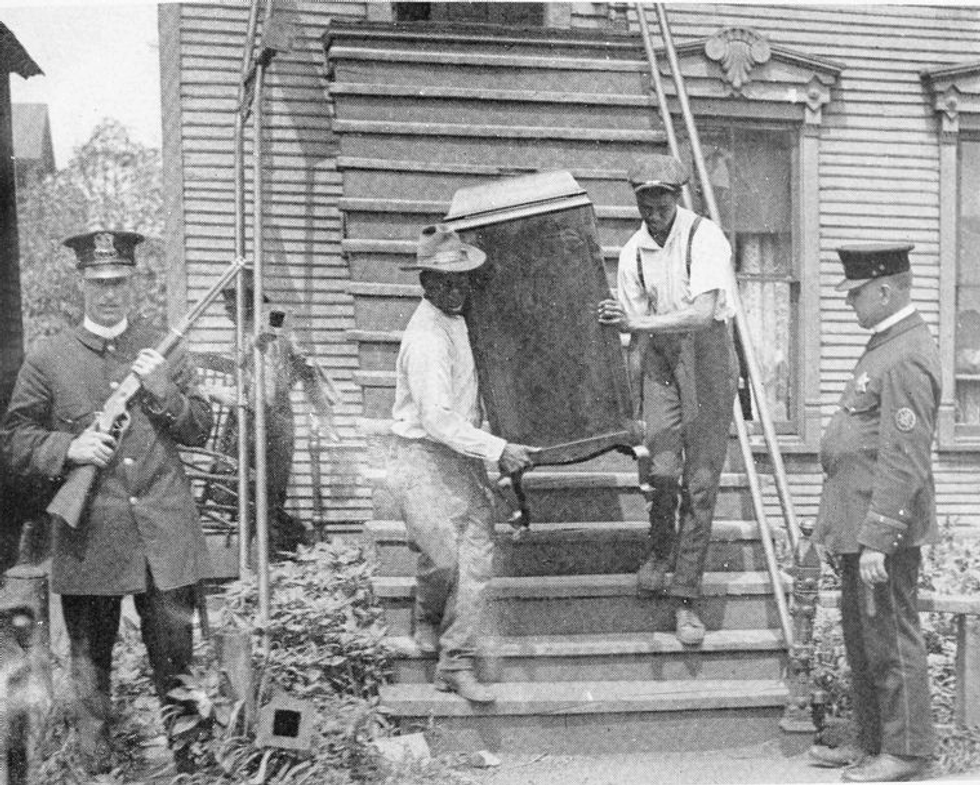Du Bois astutely reveals how mob violence has been used throughout history to prevent the expansion of democracy - which the US purports to fight for abroad.
Abolition democracy
Du Bois was intimately concerned about the fragility of American democracy.
His magnum opus, 'Black Reconstruction in America', first published in 1935, reveals just how close the US came to finally building a genuine multi-racial democracy in the wake of the Civil War.
The decade of Reconstruction, from 1867 to 1877, marked the establishment of a thriving Black civil society that included churches, primary and secondary schools, and the rise of a Black political class devoted to implementing universal social programs.
Du Bois's idea of "abolition democracy", coined in the pages of 'Black Reconstruction in America', outlines the central demands of this era for Black "physical freedom, civil rights, economic opportunity and education and the right to vote, [as a] a matter of sheer human justice and right".
However, this vision for full equity was ultimately defeated by a targeted campaign of physical violence, economic exploitation, and political neutering against Black Americans.
A new reconstruction
Now, as many activists and progressive politicians call for a new era of reconstruction, Du Bois's work demonstrates the importance of building a multi-racial working-class movement to achieve this vision of an equitable society - by warning of the destructive consequences of segregation.
Du Bois highlights how the period following Reconstruction was met by mass labor unrest, which had the potential to transform working-class conditions across the country.
Today, it is increasingly important that the US Left learns the lessons of Du Bois, and secures a diverse working-class coalition to defeat a resurgent white nationalism.For instance, the Great Railroad Strike of 1877 nearly shut down the US economy, but the movement was stymied by a lack of solidarity across racial lines.
As Du Bois explains, "Labor went into the great war of 1877 against Northern capitalists unsupported by the black man, and the black man went his way in the South ... unsupported by Northern labor."
Today, it is increasingly important that the US Left learns the lessons of Du Bois, and secures a diverse working-class coalition to defeat a resurgent white nationalism. And the past year shows that there is reason for hope.
The Black Lives Matter protests following the police killing of George Floyd in May 2020 featured historic solidarity of people across racial lines, and the victory of Joe Biden in November's presidential election was powered principally by a multi-racial coalition.
No doubt, Du Bois would have recognized our moment of resurgent white nationalism and the type of mob violence seen at the US Capitol on 6 January as similar to - although not precisely the same - as that which broke the back of Reconstruction governments across the American south in the 1870s.
Building a genuine democracy that respects the rights of all was a cherished wish of Du Bois's. That we have failed to do so means that his writings - and his vision for the future influenced by an informed and nuanced recounting of the past - becomes all the more important today.





